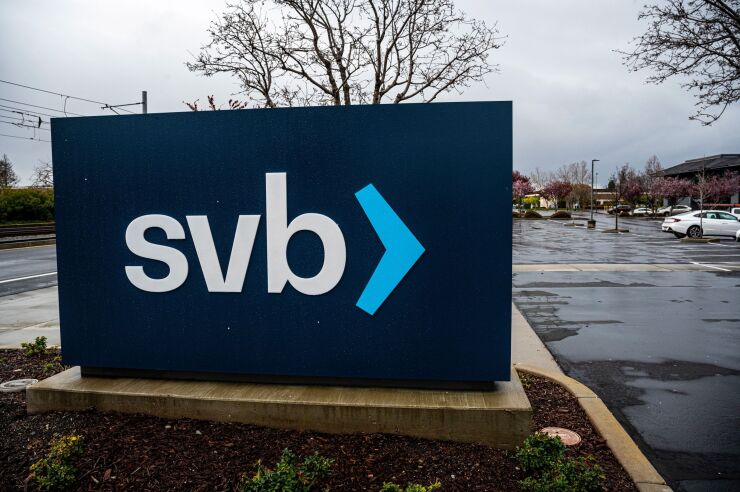
Emergency actions taken after the failure of Silicon Valley Bank in the spring of 2023 "likely" prevented further unrest in the financial system, according to a government watchdog audit.
But while banking agencies were justified in protecting uninsured depositors and setting up a purpose-built liquidity facility, the review found that the actions could weaken market discipline going forward.
In a report released this week, the Government Accountability Office, or GAO, determined that the Federal Deposit Insurance Corp.'s request to
The review noted that deposit outflows at the country's 25 largest banks, which had been accelerating in the weeks leading up to
Yet, the report also notes that it is difficult to determine how much of this improvement came from the FDIC's decision to cover uninsured deposits at the bank versus the Federal Reserve's establishment of the Bank Term Funding Program, which happened at the same time.
"This overlap makes it impossible to separate the impact of the systemic risk exceptions from that program," the report notes, adding that even Fed and FDIC staffers acknowledge that "it is difficult to directly attribute changes in economic conditions and depositor behavior to FDIC's assistance."
The GAO also concluded that it was "unclear" how the various economic and stability metrics it reviewed would have fared had emergency actions not been taken.
For the audit, GAO investigators reviewed relevant paperwork from the Treasury, Fed and FDIC about the failure of SVB and New York-based Signature Bank. They also interviewed staffers, incorporated relevant research literature and talked with subject matter experts, including former Fed Vice Chair Alan Blinder and former Federal Reserve Bank of Kansas City President Thomas Hoenig.
The report notes that the Fed and FDIC based their requests for emergency action powers on six areas of concern: deposit outflows, liquidity pressures, reduced credit availability, corporate disruptions, reduced market confidence and broader negative economic effects.
Treasury, meanwhile, based its decision to approve regulators' requests for emergency assistance on discussions with bank regulators, public financial and regulatory filings and a consultation with then-President Joseph Biden.
Based on literature reviewed by auditors and input from their expert sources, the GAO determined that while taking emergency action likely had immediate benefits for the banking system, it also could lead to banks being less diligent moving forward.
"By providing explicit deposit guarantees and implicit guarantees, such as backing uninsured deposits, FDIC may create incentives for banks to engage in riskier behavior, such as investing in riskier assets or increasing risky lending," the report notes, adding that "deposit insurance expansion may cause depositors to be less careful in selecting and monitoring their banks. If depositors feel less afraid of losing their deposits, they may also be less likely to withdraw their funds from risk-taking banks, weakening the relationship between risk and bank funding."





